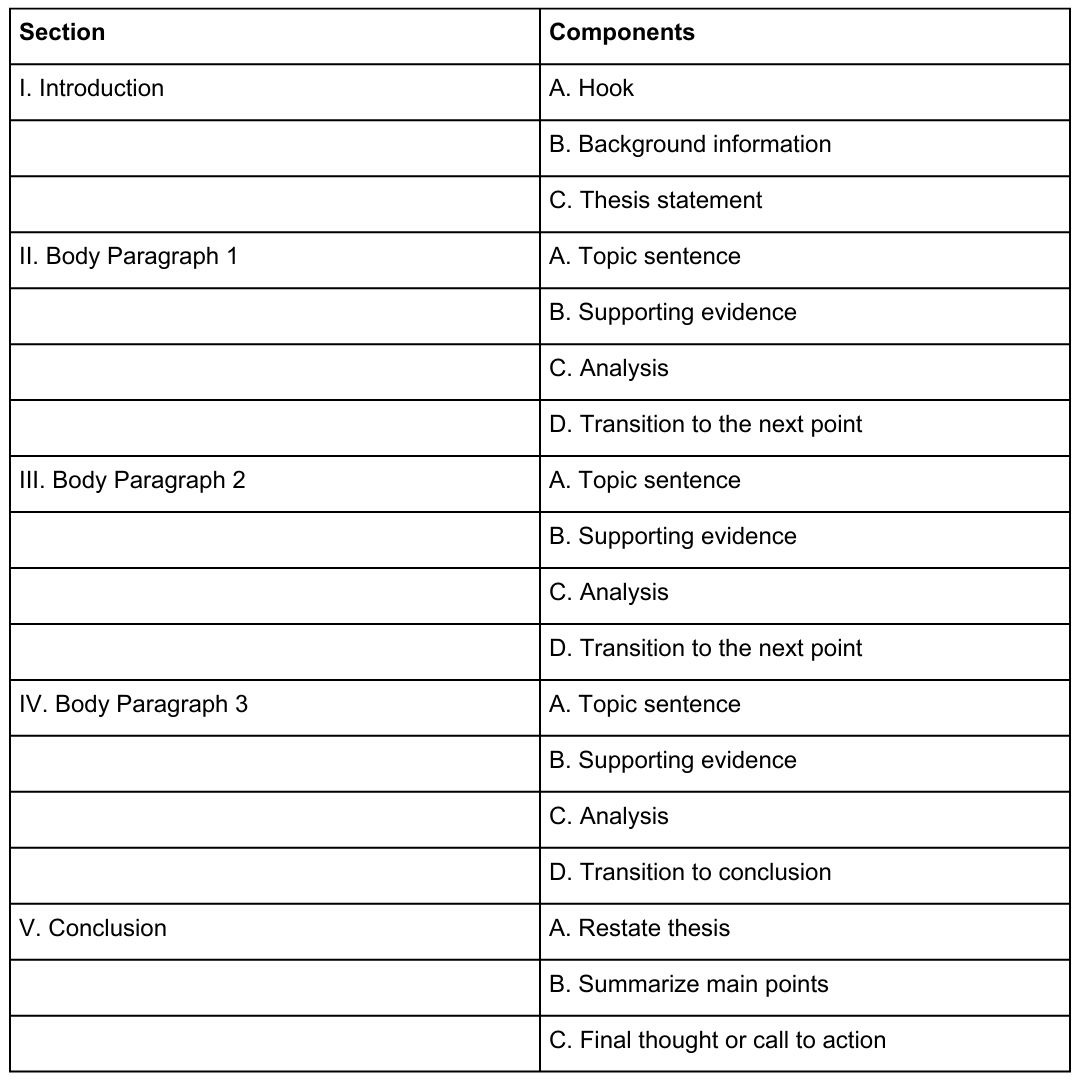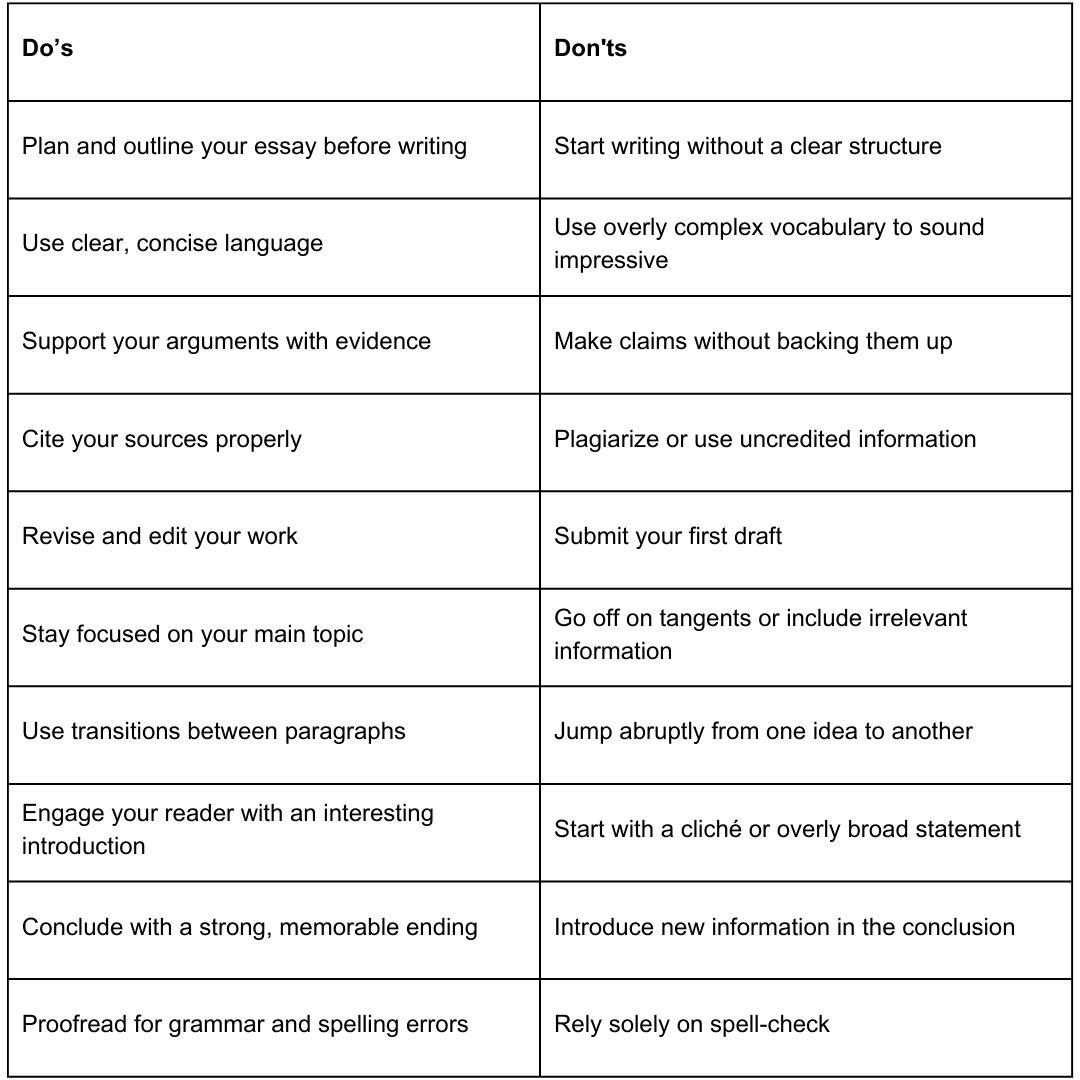
Have you ever found yourself staring at a blank page, wondering how to write an essay? You're not alone. Many students struggle with essay writing, but with the right approach and techniques, you can master this essential skill. In this article, we'll explore everything you need to know about writing essays, from understanding different types to practical tips that will elevate your writing.
Essays are more than just academic assignments. They're powerful tools for expressing ideas, analyzing concepts, and persuading readers. Whether you're a high school student tackling your first argumentative essay or a college student working on a complex research paper, understanding the fundamentals of essay writing is crucial.
Before diving into the writing process, it's important to understand the various types of essays:
Narrative essays tell a story, often drawing from personal experiences. They're an opportunity to engage your reader with vivid details and a compelling plot. Example: A narrative essay about your first day at a new school might describe the anxiety you felt, the friends you made, and the lessons you learned about adapting to new environments.
These essays paint a picture with words, using sensory details to bring a subject to life. Example: A descriptive essay about your favorite coffee shop might detail the aroma of freshly ground beans, the soft murmur of conversations, and the warm glow of Edison bulbs overhead.
Expository essays explain or inform, presenting a balanced analysis of a topic. Example: An expository essay on renewable energy sources might discuss solar, wind, and hydroelectric power, explaining how each works and their environmental impact.
These essays present a claim and support it with evidence, aiming to convince the reader of a particular viewpoint. Example: An argumentative essay on the benefits of a four-day workweek might present research on increased productivity, improved work-life balance, and reduced environmental impact.
These essays examine the similarities and differences between two or more subjects. Example: A compare and contrast essay might explore the differences between online and traditional classroom learning, considering factors like flexibility, social interaction, and access to resources.
These essays explore the relationships between events or ideas, examining how one thing leads to another. Example: A cause-and-effect essay might discuss how social media use impacts mental health, exploring factors like FOMO (fear of missing out), cyberbullying, and sleep disruption.
Analytical essays break down complex topics into smaller components for in-depth examination. Example: An analytical essay on Shakespeare's "Hamlet" might explore themes of madness, revenge, and moral corruption, analyzing how these elements contribute to the overall narrative.
Each type of essay serves a unique purpose and requires a slightly different approach. For example, a narrative essay might use more creative language and personal anecdotes, while an expository essay focuses on clear, factual information.
Now that we've covered the types of essays, let's break down the essay writing process into manageable steps. Following this structured approach will help you tackle any essay with confidence:
The first step in any essay writing task is to fully comprehend what's being asked of you. Carefully read the prompt or assignment guidelines, paying attention to:
If anything is unclear, don't hesitate to ask your instructor for clarification. It's better to seek help early than to misinterpret the assignment and head in the wrong direction.
If you're given the freedom to select your own topic, consider the following:
Brainstorming techniques like mind mapping or freewriting can help you generate potential topics and narrow down your options.
Once you have your topic, it's time to dive into research. This step is crucial for building a strong foundation for your essay. Here are some tips for writing a persuasive essay based on solid research:
Your thesis statement is the central claim or argument of your essay. It should be:
Example of a strong thesis statement: "While social media has enhanced global connectivity, its negative impacts on mental health, privacy, and political polarization outweigh its benefits, necessitating more stringent regulations and user education."
An outline serves as a roadmap for your essay, helping you organize your thoughts and ensure a logical flow of ideas. A basic outline structure includes:

With your outline in hand, it's time to start writing. Remember, this is your first draft, so focus on getting your ideas down rather than perfecting every sentence. Here are some strategies for writing essays to keep in mind:
Your introduction should hook the reader and provide context for your essay. Consider starting with:
Each body paragraph should focus on a single main idea that supports your thesis. Follow this structure:
Your conclusion should wrap up your essay effectively. Avoid introducing new information here. Instead:
After completing your first draft, take a break before starting the revision process. When you return to your essay, consider these tips on writing good essays during revision:
The final step before submission is proofreading. Look for:
Now that we've covered the basics, let's explore some advanced tips for essay writing to take your essays from good to great:
While academic writing often requires a formal tone, you can still inject your personality into your writing. Develop a style that's uniquely yours while adhering to academic conventions.
Incorporate rhetorical devices to make your writing more engaging and persuasive:
Learn to express your ideas clearly and concisely. Eliminate unnecessary words and phrases that don't add value to your argument.
Mix short, punchy sentences with longer, more complex ones to create rhythm and maintain reader interest.
While passive voice has its place, active voice generally makes your writing more direct and engaging.
Acknowledging and refuting opposing viewpoints strengthens your argument and demonstrates critical thinking.
Your title is the first thing readers see. Make it intriguing and relevant to draw them in.
The more you write, the better you'll become. Consider keeping a journal or starting a blog to hone your writing skills regularly.
If you're applying to college, your essay is a crucial component of your application. Here are some additional tips for writing a persuasive essay that will capture the attention of admissions officers:
Give yourself plenty of time to brainstorm, write, and revise. A rushed essay rarely showcases your best work.
Admissions officers want to get to know the real you. Share genuine experiences and perspectives rather than trying to write what you think they want to hear.
Instead of simply stating your qualities, demonstrate them through specific examples and anecdotes.
Highlight how your experiences have shaped you and contributed to your personal development.
Avoid generic statements. Provide concrete details that make your essay unique and memorable.
Make sure your essay directly answers the question or addresses the topic provided.
Write about something that genuinely excites or interests you. Your enthusiasm will shine through in your writing.
A polished, error-free essay demonstrates your attention to detail and commitment to quality.
Ask teachers, tutors, counselors, or trusted friends to review your essay and provide constructive criticism.
Most college essays have strict word limits. Make every word count and avoid unnecessary fluff.
To help you avoid common pitfalls and enhance your writing, here's a quick reference table of do's and don'ts:

In today's digital age, various tools and technologies can assist you in the essay writing process:
While these tools can be helpful, remember that they're aids, not replacements for your own critical thinking and writing skills.
Mastering the art of essay writing is a journey that requires patience, practice, and perseverance. By understanding the different types of essays, following a structured writing process, and implementing these tips for essay writing, you'll be well-equipped to tackle any essay assignment with confidence.
Remember, every great writer starts as a beginner. Don't be discouraged if your first attempts don't meet your expectations. With each essay you write, you'll gain confidence, develop your unique voice, and hone your critical thinking skills.
Essay writing is more than just an academic exercise—it's a valuable life skill that will serve you well beyond your school years. The ability to articulate your thoughts clearly and persuasively is an asset in many professional fields and personal endeavors.
So, the next time you're faced with an essay assignment, don't view it as a chore. Instead, see it as an opportunity to explore new ideas, challenge your thinking, and express yourself. With the strategies and tips outlined in this guide, you're well on your way to becoming a masterful essay writer.
Are you ready to take your essay writing to the next level? Logos Learning, the top online tutoring platform, offers expert language and writing tutors who can provide personalized guidance and support for all your essay-writing needs. Whether you're struggling with structuring your arguments, need help with research techniques, or want to refine your writing style, our experienced tutors are here to help.
Our tutors can assist you with:
Don't let essay anxiety hold you back from achieving your academic goals. With Logos Learning, you'll gain the confidence and skills you need to excel in your writing assignments. Our tutors offer flexible online sessions tailored to your schedule and learning style.
Take the first step towards becoming a master essay writer. Visit Logos Learning today and discover how our expert tutors can help you bring your full writing potential.